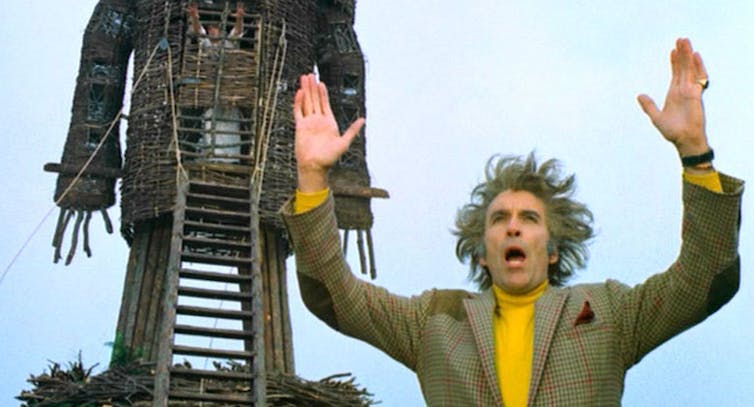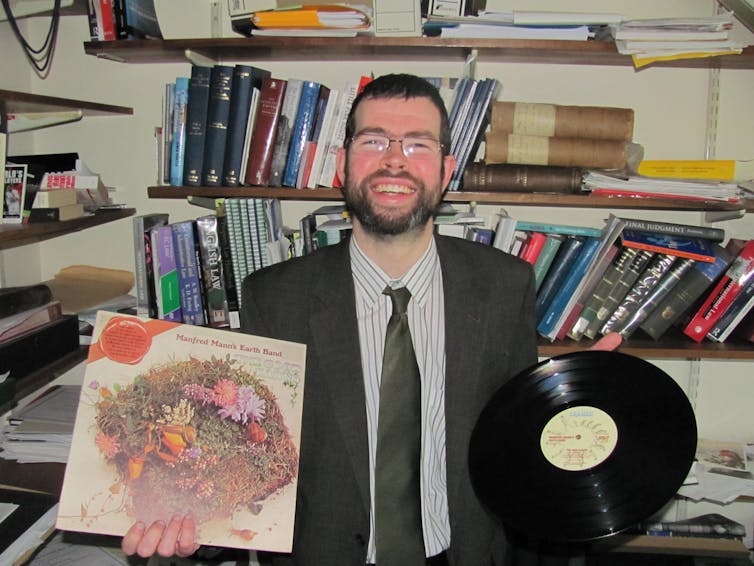The first pressings of Manfred Mann’s Earth Band 1974 album The Good Earth came with an unusual proposition. Along with seven tracks of prog-rock intellectual property, buyers also had the chance to acquire something more tangible: one square foot of land at Llanerchyrfa in mid-Wales.
This marketing stunt was not a unique idea. Then, as now, there is a trade in these so-called souvenir plots – the ideal gift perhaps for someone with a sentimental attachment to their ancestral home. The legal rules around them are the same in England and Wales, but it is a different story in Scotland. If you buy a souvenir plot in a glen, you cannot register the transaction, which means you cannot take ownership of it. At a time when the Scottish government is reforming the rules about Scottish land, is it time for this to change?
The divergence between Scotland and England and Wales goes back to the 1970s. At the start of that decade, Westminster legislated to relax the normal requirement to register a land transaction with the Land Registry in English and Welsh locations specifically designated as souvenir land schemes. As future chancellor Sir Geoffrey Howe had told the House of Commons in 1971, a “trade had grown up in recent years in order to please tourists mainly from North America … whereby they are able to purchase a ‘square foot of Old England’ for a comparatively modest sum”. The trade in souvenir plots is still possible today, although England and Wales actually reintroduced the registration requirement for new transactions in 2002.
Scotland took a tougher approach from 1979. It introduced a rule that put souvenir plots outside the registration system, which ended the possibility of acquiring ownership of them. Yet far from killing the market in Scottish plots, it has continued to thrive, with numerous online vendors also offering buyers the right to brand themselves with a title such as laird, lord or lady.

A year ago on Twitter, Scots lawyers were almost unanimously in agreement in a discussion about the state of the law. There was a consensus that buying a souvenir plot does not transfer ownership, which means that the associated grandiose title is also decidedly ropey (the Lord Lyon, who oversees Scottish heraldry, has issued an opinion to a similar effect).
Not that it made much difference. As recently as January, the Advertising Standards Authority found that one plot vendor had used wording about ownership that breached the relevant code. The ASA concluded:
We considered that because the impression given by the ad was that customers would acquire full legal ownership of the plots of land, when that was not the case, the ad was misleading.
Though some vendors have amended their product descriptions to avoid any claims about land ownership, the trade still continues. After all this time, it raises the question of whether Scots law is getting it right.
Plotting the pros and cons
One argument in favour of selling souvenir plots is the fact that they are sometimes coupled with nature conservation activities. One example is Wildcat Haven, where people are offered pieces of land on a wildcat conservation reserve. Yet any conservation activity tied to land ownership is susceptible to the criticism that it is at the whim of the owner, potentially at the expense of a joined-up approach.
Aside from conservation, there is sometimes a danger of prioritising the wishes of a pseudo-community of souvenir plot holders over a nearby resident community. Breaking land into tiny portions also makes it hard to manage and makes future dealings tricky. In effect, it sterilises the land. There is also an administrative burden associated with registering lots of fiddly plots, albeit the English Land Registry seems to have coped.
Highland Titles, a company which sells plots from £29.99, made representations to the Scottish government about changing the law when it was consulting on land reform last winter:
Some 200,000 individuals have chosen to purchase an inexpensive souvenir plot of land and 5,000-10,000 visit the land annually to the great benefit of Scottish tourism. Permitting registration … would be simple and inexpensive.
The Scottish government did not heed the request. The Land Reform Bill now working its way through Holyrood is silent in this area.
It makes you wonder what fans of Manfred Mann’s Earth Band would make of it. Years after the album came out, the head of the band’s fan club said that the land giveaway was “a great idea, not a gimmick,” saying “this is a bit of beautiful land where the birds can fly over, where animals can live and flowers grow, without being polluted or killed”.

He certainly makes it sound appealing – ecological spin-offs like this may well be worth singing about. Further, as Geoffrey Howe told the Commons back in 1971, the practice “helps the balance of payments and it gladdens the hearts of our continental cousins”.
While that may be so, there is a strong argument that encouraging very occasional visitors to lord it over the locals is not desirable – even before you consider the curious cultural effect that it might have. So maybe Scots law is getting it right. Either way, the different approaches within the UK need to be recognised by anyone tempted to buy a small slice of the old country today. While you can become owner of such land south of the border, you would be advised to consider the Scottish situation a little more carefully.

